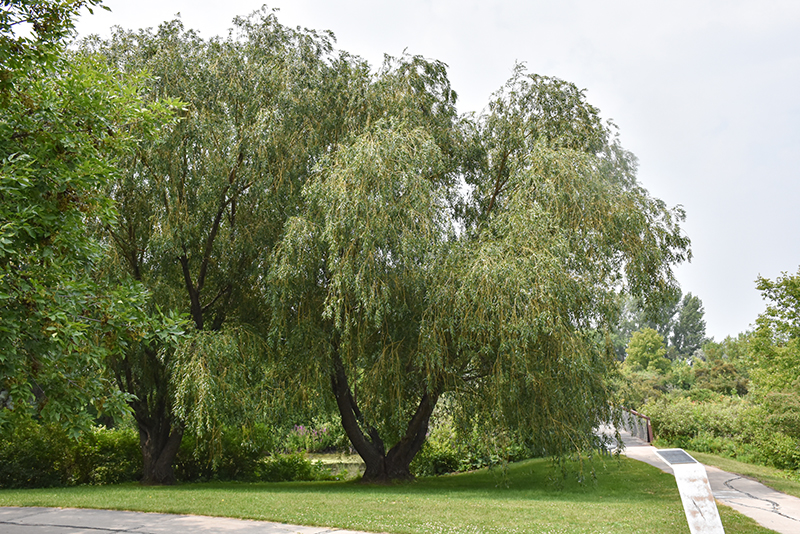>> Home
Wisconsin Weeping Willow
Salix x pendulina 'Wisconsin'
Height: 40 feet
Spread: 40 feet
Sunlight:
![]()
Hardiness Zone: 3
Description:
An artistic accent tree featuring gracefully weeping golden branches, beautiful overhanging still water; needs plenty of wide open space to grow; tends to drop branchlets, aggressive root system, so do not plant near homes
Ornamental Features
Wisconsin Weeping Willow is primarily valued in the landscape for its highly ornamental weeping form. It has forest green deciduous foliage. The glossy narrow leaves turn yellow in fall. The furrowed brown bark and gold branches are extremely showy and add significant winter interest.
Landscape Attributes
Wisconsin Weeping Willow is a dense deciduous tree with a rounded form and gracefully weeping branches. Its relatively fine texture sets it apart from other landscape plants with less refined foliage.
This is a high maintenance tree that will require regular care and upkeep, and is best pruned in late winter once the threat of extreme cold has passed. Gardeners should be aware of the following characteristic(s) that may warrant special consideration;
- Messy
- Invasive
Wisconsin Weeping Willow is recommended for the following landscape applications;
- Accent
Planting & Growing
Wisconsin Weeping Willow will grow to be about 40 feet tall at maturity, with a spread of 40 feet. It has a low canopy with a typical clearance of 1 foot from the ground, and should not be planted underneath power lines. It grows at a fast rate, and under ideal conditions can be expected to live for 50 years or more.
This tree should only be grown in full sunlight. It is quite adaptable, prefering to grow in average to wet conditions, and will even tolerate some standing water. It may require supplemental watering during periods of drought or extended heat. It is not particular as to soil type or pH. It is highly tolerant of urban pollution and will even thrive in inner city environments. This particular variety is an interspecific hybrid.
